detail profile karim a c3 afnouz
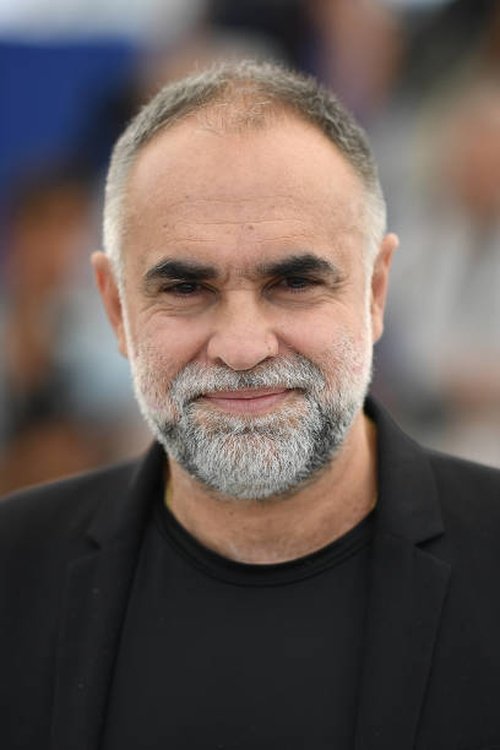
Karim Aïnouz
Karim Ainouz
atau dikenal sebagai
Riwayat Hidup
Karim Aïnouz (born 17 January 1966) is a Brazilian filmmaker and visual artist.
Description above from the Wikipedia article Karim Aïnouz, licensed under CC-BY-SA, full list of contributors on Wikipedia.
Info Pribadi
Peran Yang Di Mainkan Karim Aïnouz
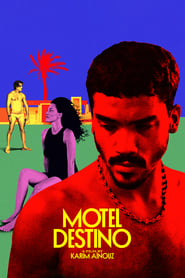 Dayana lives an abusive marriage with...
Dayana lives an abusive marriage with...Motel Destino 2024
Dayana lives an abusive marriage with former police officer Elias, owner of Motel Destino. When 21-year-old Heraldo finds himself at the motel after messing up a hit and going on the run, Dayana finds herself intrigued and lets him stay. As the two navigate a dance of power and desire, a dangerous plan for freedom emerges.
 Katherine Parr the sixth wife of...
Katherine Parr the sixth wife of...Firebrand 2024
Katherine Parr, the sixth wife of King Henry VIII, is named regent while the tyrant battles abroad. When the king returns, increasingly ill and paranoid, Katherine finds herself fighting for her own survival.
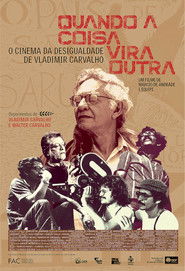 Vladimir Carvalhos Cinema of Inequality marked...
Vladimir Carvalhos Cinema of Inequality marked...Quando a Coisa Vira Outra 2022
Vladimir Carvalho's Cinema of Inequality marked the documentary filmmaker's trajectory over decades of activity. Considered one of the most important Brazilian documentary filmmakers in activity, his images influenced the emergence of Cinema Novo and the new Brazilian documentary years later. Quando a Coisa Vira Outra covers the most important films made by Vladimir, revealing where ideas come from to show the true reality of a country.
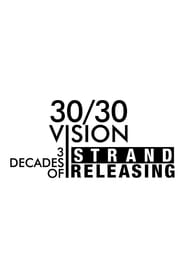 Over 30 filmmakers and friends of Strand...
Over 30 filmmakers and friends of Strand...30/30 Vision: Three Decades of Strand Releasing 2019
Over 30 filmmakers and friends of Strand Releasing have come together to honor the company’s indelible contribution to independent cinema over the past thirty years. The participating filmmakers have each created a short film for the project, all shot on iPhones.
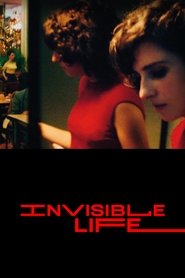 Rio de Janeiro Brazil 1950 In the...
Rio de Janeiro Brazil 1950 In the...Invisible Life 2019
Rio de Janeiro, Brazil, 1950. In the conservative home of the Gusmão family, Eurídice and Guida are two inseparable sisters who support each other. While Guida can share with her younger sister the details of her romantic adventures, Eurídice finds in her older sister the encouragement she needs to pursue her dream of becoming a professional pianist.
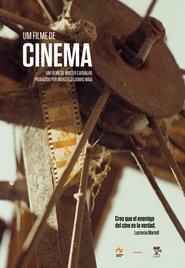 An abandoned tumbledown theater in the...
An abandoned tumbledown theater in the...About Cinema 2015
An abandoned tumbledown theater in the outback of Paraíba state is the initial setting of a film about cinema, which explores the testimonials of the novelist and playwright Ariano Suassuna and other filmmakers such as Ruy Guerra, Julio Bressane, Ken Loach, Andrzej Wajda, Karim Ainouz, José Padilha, Hector Babenco, Vilmos Zsigmond, Béla Tarr, Gus Van Sant and Jia Zhangke. They all respond to two basic questions: why do they make movies and why do they serve the seventh art. The filmmakers share their thoughts about time, narrative, rhythm, light, movement, the meaning of tragedy, the audience‘s desires and the boundaries with other forms of art.
 Made for the Venice Film Festivals 70...
Made for the Venice Film Festivals 70...Venice 70: Future Reloaded 2013
Made for the Venice Film Festival's 70th anniversary, seventy filmmakers made a short film between 60 and 90 seconds long on their interpretation of the future of cinema.
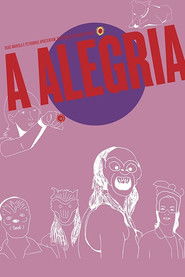 Joy is a fable about courage...
Joy is a fable about courage...The Joy 2010
Joy is a fable about courage and youth. It tells the story of Luiza, 16 year old girl, who can not stand to hear about the end of the world… On a Christmas night, his cousin John is mysteriously shot in a street in the Lowlands and disappears into the night. Weeks later, while Luiza spends days alone in the apartment where he lives with his mother in Rio de Janeiro, a mysterious visitor comes knocking on your door: John, as a ghost, asking to hide there.
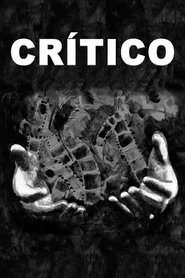 Seventy critics and filmmakers discuss cinema...
Seventy critics and filmmakers discuss cinema...Critic 2008
Seventy critics and filmmakers discuss cinema around the conflict between the artist and the observer, the creator and the critic. Between 1998 and 2007, Kléber Mendonça Filho recorded testimonies about this relationship in Brazil, the United States and Europe, based on his experience as a critic.
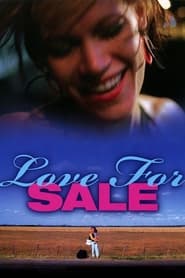 In northern Brazil Hermila patiently waits...
In northern Brazil Hermila patiently waits...Love for Sale 2006
In northern Brazil, Hermila patiently waits for her husband. However, he has abandoned her. Sexy, restless and resolute, she raffles off "a night in paradise" with herself. This beautifully-shot portrait doesn't shy away from the burdens of a young scarred woman, but it also celebrates her courage to live according to her own rules.
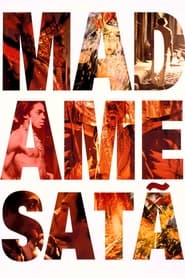 A story inspired by the life...
A story inspired by the life...Madame Satã 2002
A story inspired by the life of one of the most remarkable figures in Brazilian popular culture, João Francisco dos Santos (1900-1976). In turn, bandit, transvestite, street fighter, brothel cook, convict and father to seven adopted children, dos Santos – better known as Madame Satã – was also a notorious gay performer who pushed social boundaries in a volatile time.
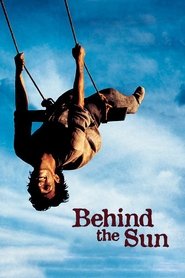 Brazilian badlands April 1910 Tonho is ordered...
Brazilian badlands April 1910 Tonho is ordered...Behind the Sun 2001
Brazilian badlands, April 1910. Tonho is ordered by his father to avenge the death of his older brother. The young man knows that if he commits this crime, his life will be divided in two: the twenty years he has already lived and the few days he has left to live, before the other family avenges their son's death. He is torn between fulfilling his ancestral duty and rebelling against it, urged by his younger brother Pacu. That's when a tiny travelling circus passes through the vast badlands where Tonho's family lives.
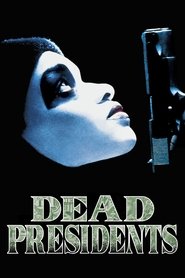 On the streets they call cash...
On the streets they call cash...Dead Presidents 1995
On the streets they call cash dead presidents. And that's just what a Vietnam veteran is after when he returns home from the war only to find himself drawn into a life of crime. With the aid of his fellow vets he plans the ultimate heist -- a daring robbery of an armored car filled with unmarked U.S. currency!
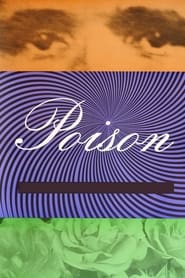 A trio of interweaved transgressive tales...
A trio of interweaved transgressive tales...Poison 1991
A trio of interweaved transgressive tales, telling a bizarre stories of suburban patricide and a miraculous flight from justice, a mad sex experiment which unleashes a disfiguring plague, and the obsessive sexual relationship between two prison inmates.
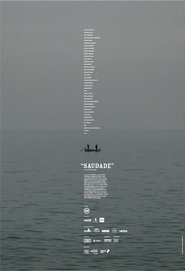
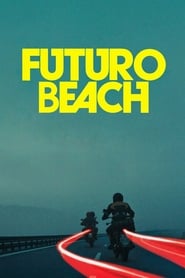 Donato fails in his attempt to...
Donato fails in his attempt to...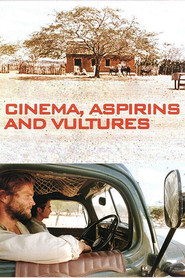 1942 in the middle of Northeastern Brazil...
1942 in the middle of Northeastern Brazil... Best friends Deco and Naldinho coown...
Best friends Deco and Naldinho coown...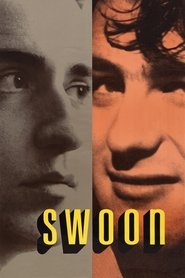 Teenagers Nathan Leopold Jr and Richard...
Teenagers Nathan Leopold Jr and Richard...